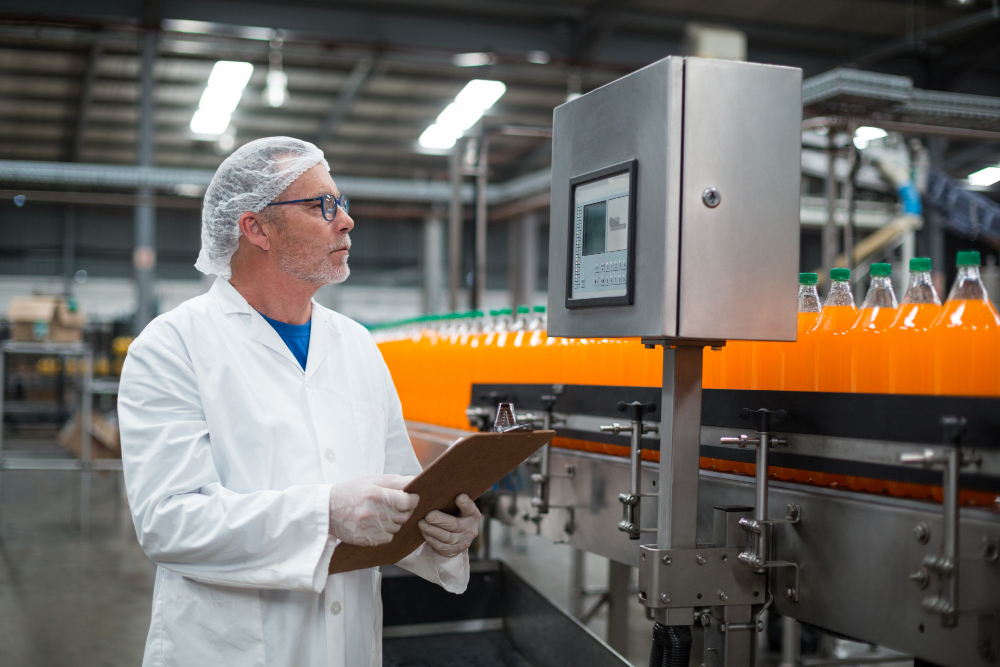Improving Quality Control in Beverage Manufacturing: AI-Powered Strategies for Success

In the competitive world of beverage manufacturing, quality isn’t just a selling point—it’s a necessity. From ensuring product consistency and taste to meeting stringent regulatory standards, beverage manufacturers face immense pressure to deliver flawless products. A single quality issue can lead to costly recalls, tarnished brand reputation, and lost customer trust.
Quality control in beverage manufacturing is a complex process involving ingredient sourcing, production monitoring, packaging, and distribution. Traditional methods often struggle to keep up with modern demands for speed and accuracy. However, advancements in artificial intelligence (AI) are revolutionizing quality control, offering real-time insights, predictive capabilities, and automation to tackle these challenges head-on.
Quality control (QC) in beverage manufacturing involves multiple layers of complexity. Here are the primary challenges that manufacturers face:
Consistency Across Batches: Achieving consistent taste, color, and texture across production runs is critical but difficult, especially for natural or seasonal ingredients.
Regulatory Compliance: Manufacturers must adhere to strict quality and safety standards, varying across regions, including HACCP, FDA, and ISO certifications.
Traceability: Identifying the source of a defect or contamination quickly is crucial to mitigate damage and comply with regulations.
Speed vs. Accuracy: Balancing the need for rapid production with stringent QC checks often leads to compromises in efficiency or thoroughness.
Artificial intelligence is transforming how beverage manufacturers approach quality control. By leveraging machine learning, predictive analytics, and IoT technologies, manufacturers can elevate their QC processes to new levels of precision and efficiency.
1. Real-Time Quality Monitoring
AI-driven sensors and IoT devices can monitor critical parameters such as temperature, pH, viscosity, and carbonation levels in real-time. This ensures that any deviation from predefined standards is detected immediately, allowing for corrective actions during production rather than post-production.
Example: A soda manufacturer uses IoT sensors to continuously monitor carbonation levels during production. AI algorithms analyze the data and flag any inconsistencies, ensuring uniform taste and texture across every bottle.
2. Predictive Analytics for Proactive QC
Predictive models powered by AI can analyze historical production data to identify patterns that lead to defects. By anticipating issues before they occur, manufacturers can take preventive measures to avoid costly mistakes.
Example: A juice company uses AI to predict potential spoilage in raw fruit ingredients based on storage conditions, enabling timely usage and reducing waste.
3. Automated Visual Inspections
AI-powered cameras can perform high-speed visual inspections of bottles, cans, and packaging for defects such as dents, incorrect labeling, or contamination. These systems outperform human inspectors in speed and accuracy, ensuring flawless packaging.
Example: A bottled water manufacturer implements AI-based visual inspections to identify micro-cracks in bottles, preventing leaks and ensuring consumer safety.
4. AI-Driven Ingredient Optimization
AI algorithms can optimize ingredient usage by analyzing recipes and production conditions, ensuring consistent flavor profiles while minimizing waste and cost.
Example: A craft beer producer uses AI to balance hop levels based on real-time taste tests and ingredient availability, delivering a consistent product batch after batch.
Addressing complex quality control challenges often requires access to specialized expertise and cutting-edge technology. This is where the Virtual Delivery Center (VDC) model comes into play. A Virtual Delivery Center is a digital platform that connects manufacturers with on-demand experts, advanced tools, and AI-driven solutions tailored to their unique needs.
How VDC Works for Quality Control:
On-Demand Expertise: Manufacturers can access specialists in AI, data analytics, and quality assurance to design and implement advanced QC systems.
Custom AI Solutions: VDC provides tailored AI tools to automate QC processes, monitor real-time data, and perform predictive analysis.
Cost Efficiency: Instead of hiring full-time experts, manufacturers can use the VDC model to engage specialists only when needed, reducing operational costs.
Scalability: As production scales, the VDC model adapts to meet increasing demands for QC without the need for significant infrastructure investments.
Example in Action:
A beverage manufacturer facing repeated packaging defects partners with a Virtual Delivery Center to implement AI-powered visual inspection tools. Within weeks, the defect rate drops by 40%, and customer complaints related to packaging errors decrease significantly.
The VDC model bridges the gap between traditional manufacturing methods and cutting-edge technology, empowering businesses to innovate without overstretching their resources.
In an industry where quality is non-negotiable, leveraging AI and Virtual Delivery Centers can redefine how manufacturers approach quality control. By adopting these advanced strategies, beverage companies can ensure product consistency, reduce waste, and enhance regulatory compliance—all while staying ahead in a fiercely competitive market.
The journey toward flawless quality may be complex, but the tools and expertise available today make it achievable. Embracing these solutions not only protects the brand but also fosters trust and loyalty among consumers.